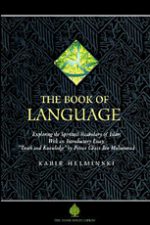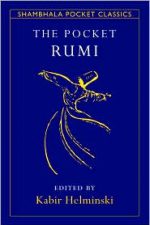-
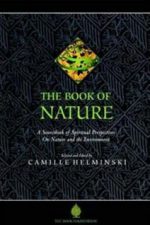
A Sourcebook of Spiritual Perspectives On Nature and the Environment
By Camille Helminski An anthology of spiritual perspectives on nature and th environment. Camille's anthology will forever change how you see the natural world and our place in it. Themes from the Qur'an introduce each chapter, while the content is taken from the writing of great nature lovers from many cultures and traditions. [Paperback] -
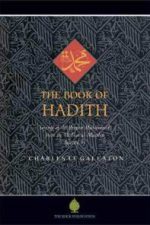
Sayings of the Prophet Muhammad
Selected by Charles Le Gai Eaton Sayings of the Prophet Muhammad from the Mishkat al-Masabih, with an Introduction by Jeremy Henzell-Thomas. This collection highlights not only many of the most loved and important sayings of the Prophet (peace upon him), but many that reveal an unexpected, personal side of the man himself. -
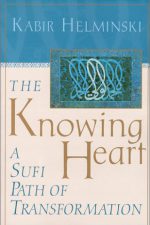
A Sufi Path of Transformation
By Kabir Helminski As human beings we stand on the threshold between two realities: the world of material existence and the world of spiritual Being. The “knowing heart” is the sacred place where these two dimensions meet and are integrated. In Sufi teaching the human heart is not a fanciful metaphor but an objective organ of intuition and perception. -
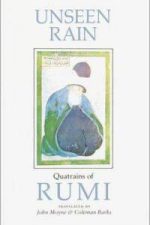
Quatrains of Rumi
Versions by John Moyne and Coleman Barks Rumi's short poems have many tones and effects: some of them are quick, joyful, and whimsical; some are finely faceted abstract statements; some probe the inward space of patience and longing. Moyne and Barks translated these poems using a free-verse style, connecting these poems with great American spiritual poets such as Walt Whitman and Gary Snyder. -
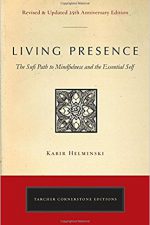
The Sufi Path to Mindfulness and the Essential Self
By Kabir Helminski Revised 25th anniversary edition Sufism is a centuries-old spiritual psychology leading to presence in life. Presence is our capacity to be whole in the moment, in alignment with our deepest wisdom. With unusual clarity, this book describes how presence is different from ordinary habits of mind, and how it can be developed. Drawing on the words of the great Sufi, Rumi, as well as traditional material and personal experience, this book integrates the wisdom of Sufism with the needs of contemporary life. Also available as an Amazon Audible audiobook, narrated by Iman Mortagy. -
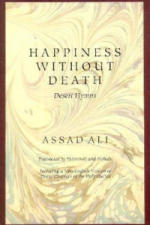
Desert Hymns
By Dr. Assad Ali The voice of these poems is the voice of the Desert in an ardent appeal to the heart of Reality. Each of these poems is also a lesson in higher education from a loving teacher, the Desert. As Dr. Ali himself says, "These hymns have not been written to address any one of the creatures, even though they are exuberant with creatures' concerns, and their true interest is in them and in appealing to God for them. They have been written in a method similar to physical training, but as spiritual training in the world of the body and the Word." -
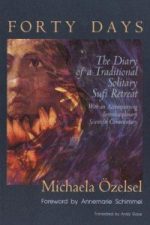
A Diary of a Traditional Sufi Retreat
By Michaela Ozelsel This first-hand account of a Sufi halvet (forty day retreat) is unique because it combines an autobiographical account of a spiritual education with contemporary research from several disciplines, thus being a bridge between ancient wisdom and scientific investigation. -
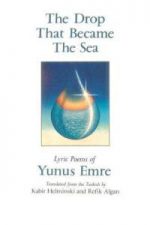
Selected Lyric Poetry of Yunus Emre
Translated by Refik Algan & Kabir Helminski Yunus Emre (d. 1320?), called the "greatest folk poet in Islam" (Talat Sait Halman), was an unlettered Turkish shepherd who sang mystical songs which are still popular today. He was the first of a whole tradition of Turkish Sufi troubadours who sang of the Divine Presence, the Beloved, the Friend. His songs/poems convey a profound yet earthy spirituality. His subject is the Heart, the point of awareness where God is realized in us. "I've come to build some heart," Yunus sings. We are proud to introduce this great poet to readers of English. -
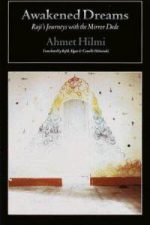
Raji's Journeys with the Mirror Dede
By Ahmet Hilmi Awakened Dreams was written in the early 1900's at the end of the Ottoman era by Ahmet Hilmi -- humorist, revolutionary, and Sufi mystic. In this allegory of the soul's transformation, a confused and dissolute young man meets a wise mentor in a cemetery and is guided through a series of revelatory experiences. Raji meets Buddha, Zoroaster, and other prophets, experiences himself in strange new worlds, and journeys through the levels of spiritual attainment. Awakened Dreams has been used a teaching tool in various Sufi traditions for the last ninety years. -
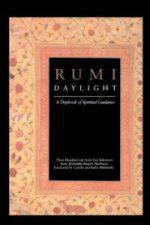
A Daybook of Spiritual Guidance 365 Selections from the Mathnawi of Mevlana Jalaluddin Rumi
Translated by Kabir and Camille Helminski Daylight presents Rumi's spiritual teaching concisely and comprehensively, in a translation that touches heart and mind. The Mathnawi, from which these selections are taken, can justifiably be considered the greatest spiritual masterpiece ever written by a human being.


